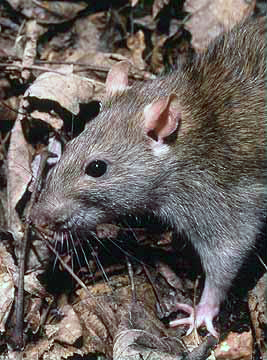Rats
- How humane are our pest control tools? (09-11326) MAF Biosecurity New Zealand Technical Paper No: 2011/01 Prepared for MAFBNZ Operational Research By Landcare Research, Lincoln, New Zealand
- Humane Deterrents and Pest Control (Rodents) 2014 , by the National Council of SPCAs (New Zealand) Special Projects Unit
[...]
"Working with SenesTech Inc., the [New York] Metropolitan Transportation Authority is launching the first urban trial of a pest-control bait that induces permanent infertility in rats. The product has succeeded in rural environments, lowering rodent populations without harming other animals, crops or humans."
[...]
"Dead rats don't necessarily mean fewer rats in the long run, said Thomas Lamb, chief of innovation and technology for New York City Transit. By lowering the competition for food, successful poisons tend to make the survivors more healthy and fertile, leading to a rapid rebound in the pest population."
"Rats eventually outsmart even the best poisons. 'It doesn't take them long to figure out, 'Hey, Uncle Charlie croaked after eating that,'" Mr. Lamb said."
"'We basically bait, trap and kill,' he said of the status quo. 'If we just continue to do that, every year we'll have the same expense and the same result.'"
"Dr. Mayer's invention, by contrast, induces an early-onset menopause, eliminating future generations of pests.
"'It's a very natural thing,' she said. 'We're just accelerating it in these animals.'"
"The product metabolizes into inactive compounds within hours of being ingested, she said, a feature crucial to its development for use in rice fields in Asia, where farmers needed something that wouldn't sicken other animals and children. The chemical won't leach into water or climb back up the food chain to affect other species."





